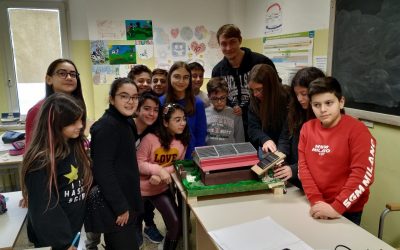“Cultural diversity is beautiful and can enhance your organization or your team!”
Every organization or company has its own typical culture. A culture can be described as tacit knowledge, which means that it is context-specific, and not easy to transfer the knowledge on to outsiders.  There are specific customs what people do each day, or a specific way of greeting. Moreover, communication can be both really formal or really informal, depending on which company you are referring to.
There are specific customs what people do each day, or a specific way of greeting. Moreover, communication can be both really formal or really informal, depending on which company you are referring to.
Mixing cultures
Still, one organizational culture does not mean that there can’t be any cultural differences among its employees.
Today, managers have an extra challenge to fostering teamwork compared to several years ago. Dealing with language barriers, time differences and cultural differences are just some of those extra challenges.
Not only companies have to deal with cultural differences. It can also be present when students have to work together for a university group project, within AIESEC-teams, or maybe even within the local football team. No matter if this collaboration is forced, or self-chosen, in order to make sure that collaboration despite these differences will be as smooth as possible, the blog-team collected some tips that will make this a bit easier.
Acknowledge cultural differences
The first step to overcoming cultural differences is accepting that they are present. Next to that, everyone in the team should have respect for these differences. Sure, they can cause some troubles, but people should always be aware that these differences are caused by someone’s way of life. Even though people are living and working in a different country than that they are used to, this does not mean that it is possible for them to act according to the present country’s customs immediately.
Acknowledging cultural differences also means that all team members should know what kind of differences can be present, and how to deal with them. So, it is wise that all team members immerse themselves a bit into the culture of the others.
Communicate
Once the cultural differences are present, it is very important to talk about them openly within your team. This will help with expectation setting and in overcoming differences. And although good communication is key in teamwork, it gets more and more important once team members become more diverse.
Whenever friction arises between team members, it is really important to discuss this honestly and openly in a one-to-one meeting. Similarly, whenever there is friction within the group, make sure that you discuss these irritations as soon as they become present and do this friendly and openly within the team.

Establish norms for the team
Another tip that could be very useful (with or without cultural differences) is setting norms and guidelines within the team before you start working on the project. Make sure to set these norms together with the team, so that everyone is on the same page.
Similar values
One last tip that can be very valuable within organizations is hiring people that share the same values. Despite cultural differences, people all over the world can share the same personal values. Once people already value the organizations core values, adapting to the organization and collaborating will get a lot easier.
Despite all these tips, cultural diversity is beautiful and can enhance your organization or your team. It could lead to new perspectives and lead to more efficient or better ways to do things.
This post was written by AIESEC in the Netherlands. We offer international voluntary projects and professional internships with the aim of developing leadership in youth.














